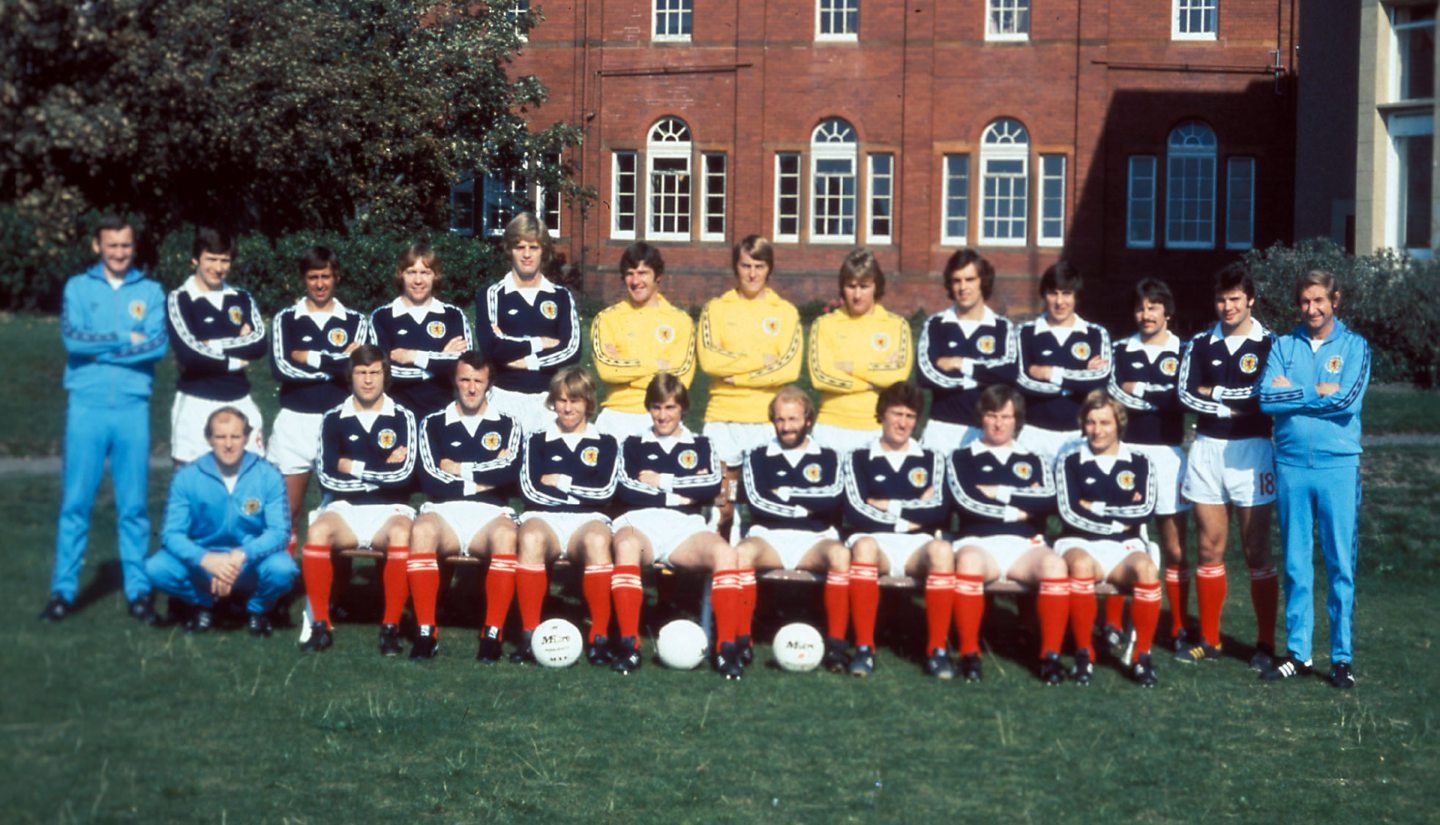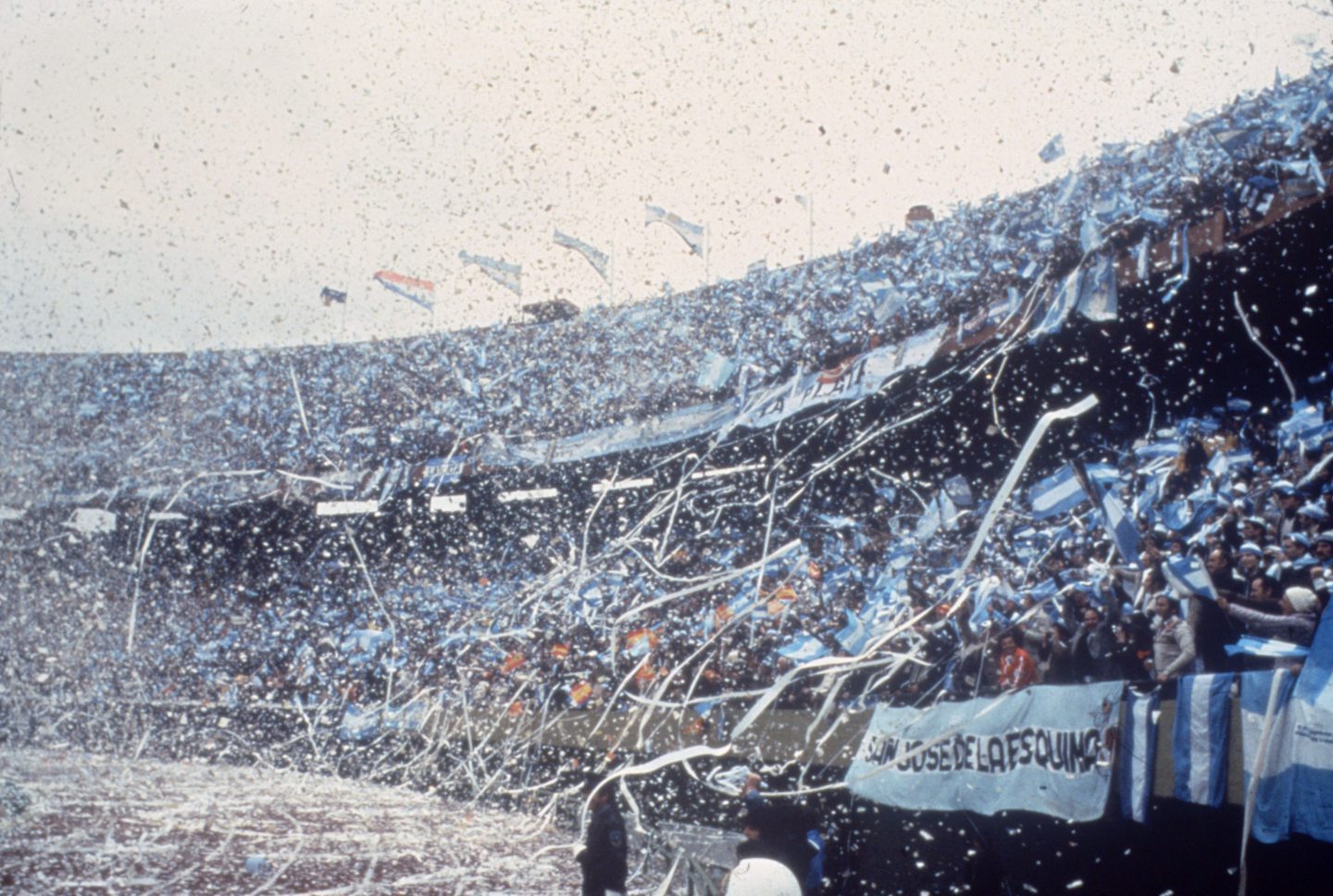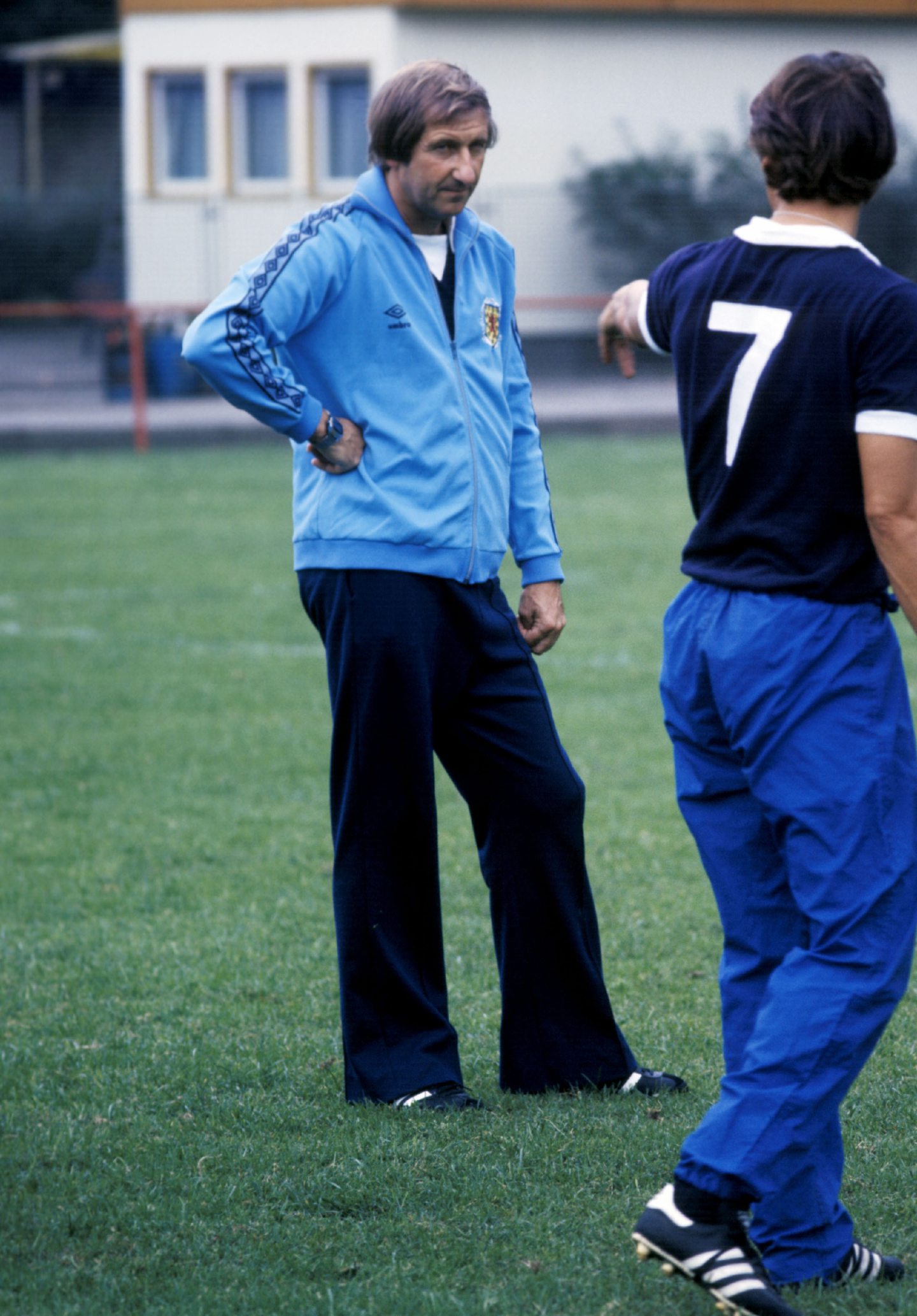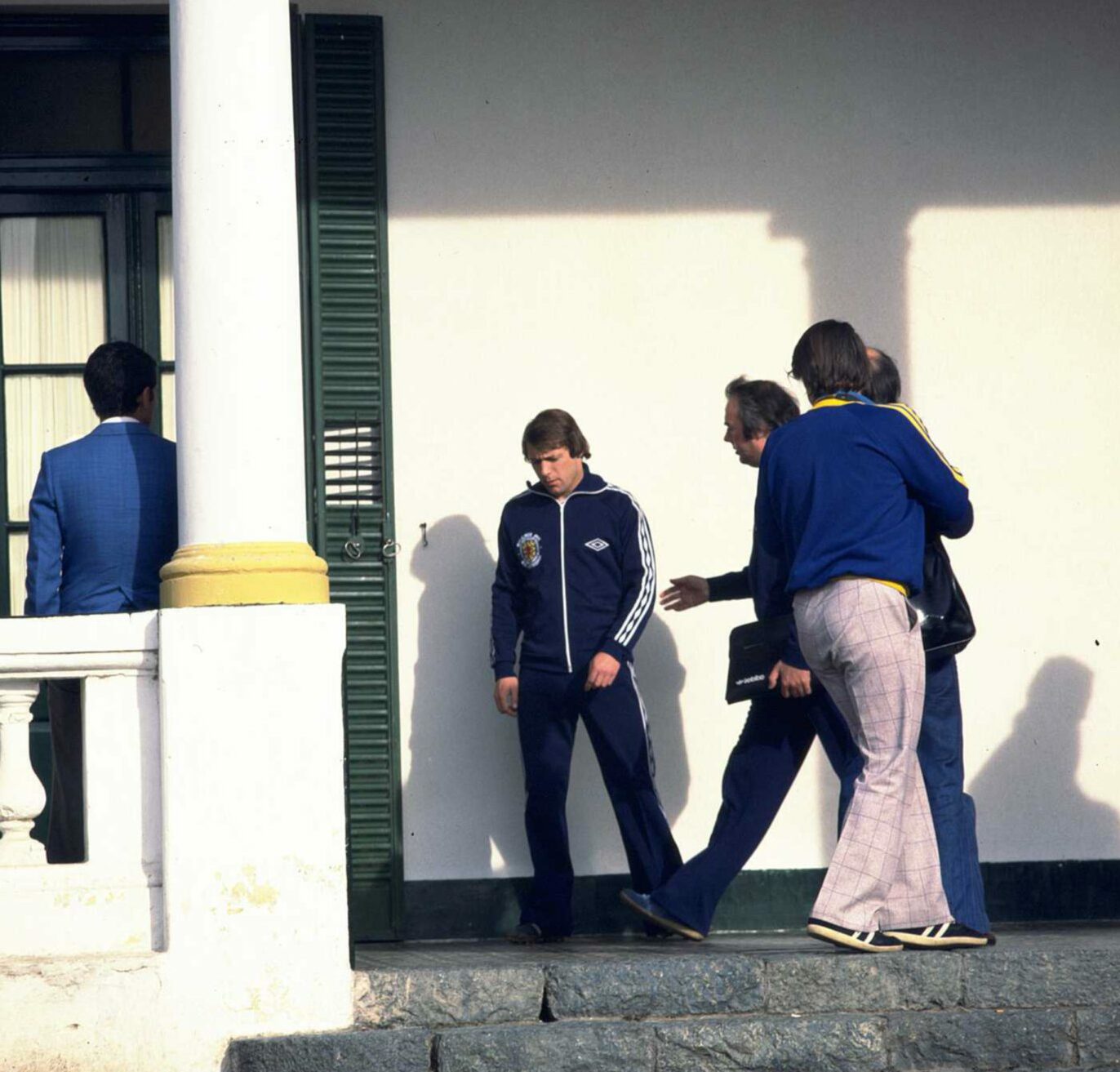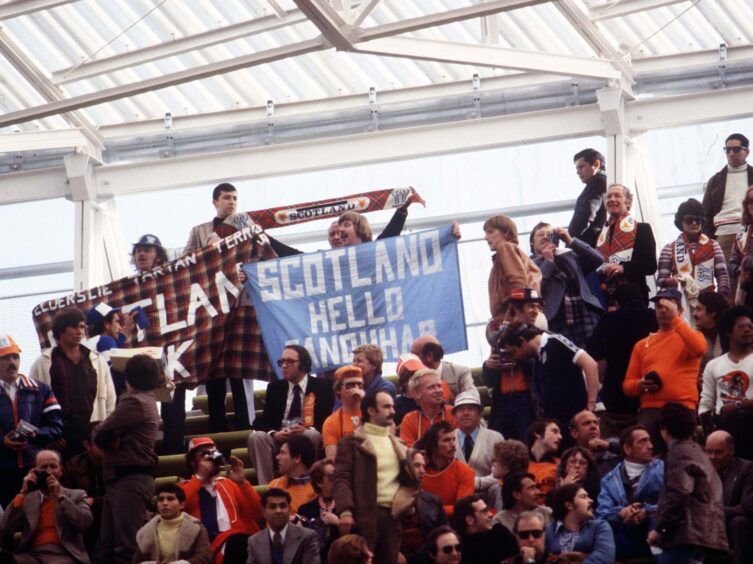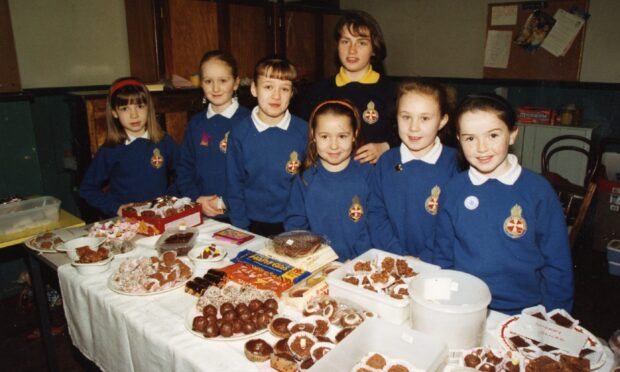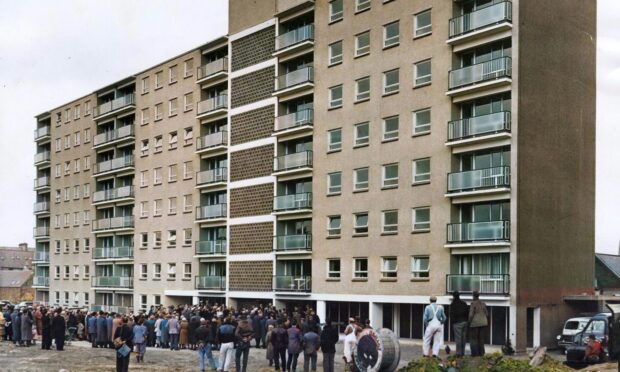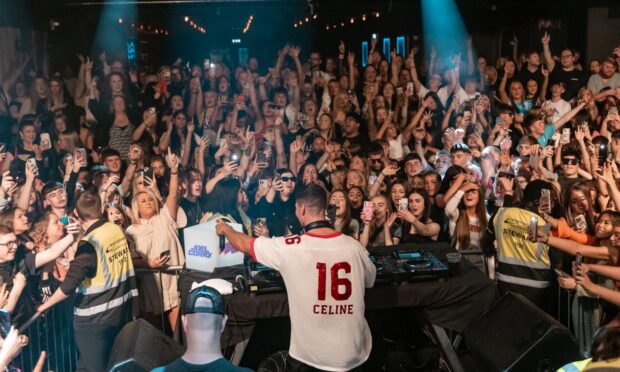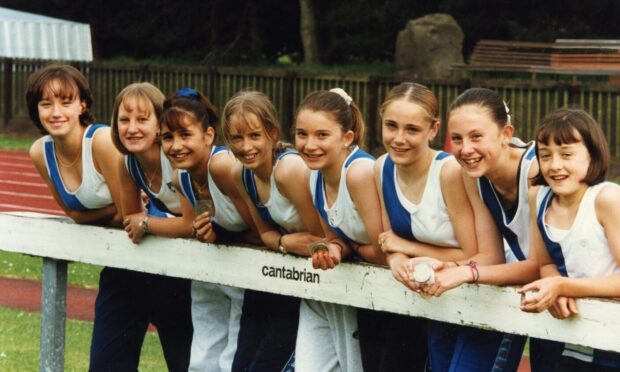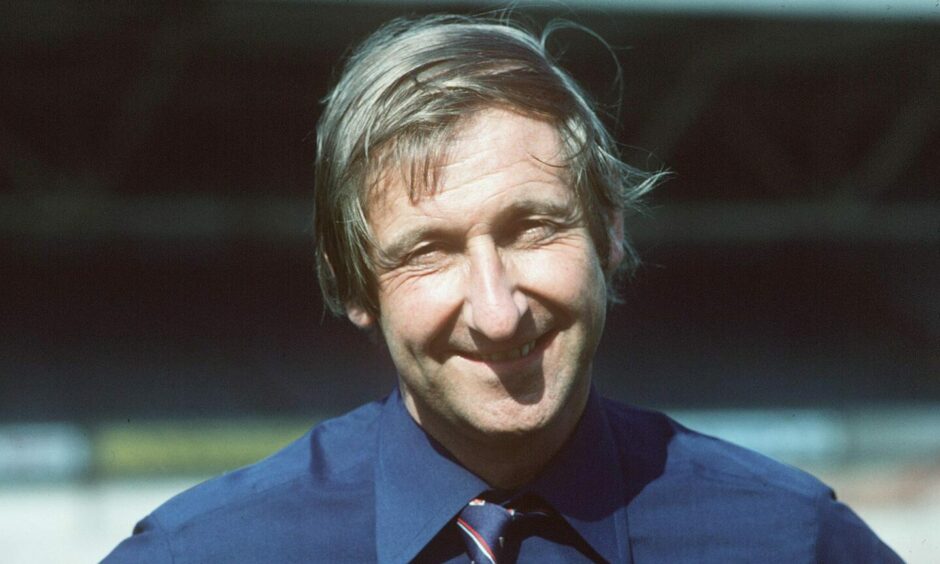
“We couldn’t have had a better draw if I had done the job myself.”
Ally MacLeod was feeling like a man who had just won the pools after watching the draw for the 1978 World Cup take place at the Teatro San Martin in Buenos Aires.
The three-year-old grandson of Fifa president Dr Joao Havelange divided the 16 teams into four groups with Scotland drawn against a Cruyff-less Holland, Peru and Iran.
A Scotsport Special showed the World Cup 1978 draw live on STV at 9pm on Saturday January 14 1978 with MacLeod commentating alongside sportswriter Ian Archer.
“Scotland have never had a better chance,” said MacLeod.
“In the past we’ve blown our chances with silly mistakes like those against Zaire in the last World Cup but this time I promise you we won’t throw away a golden opportunity.”
MacLeod whipped the nation up into a frenzy of believing we could go all the way.
Scotland players Bruce Rioch, Don Masson, Danny McGrain, Sandy Jardine and Alan Rough were back in the studio in Glasgow to give analysis on the first-round fixtures.
Masson said: “I think Scotland are certain to get to the quarter-finals, at least.”
Scotland avoided three-time winners Brazil, holders West Germany and the host nation Argentina, who were drawn alongside Italy, Hungary and the Michel Platini-led French.
Scotland 10/1 to win the World Cup
Rioch said: “I think it is marvellous for us.
“I really don’t think we could have asked for anything better.
“We must start to fancy our chances now.
“Scotland will almost certainly reach the quarter-finals for the first time ever.
“I still reckon West Germany, Brazil and Holland are the big guns everybody has to beat.”
Bookmaker Joe Coral made Scotland 10/1 to win the World Cup.
Brazil and West Germany were 4/1 favourites and Argentina and Holland 7/1.
MacLeod immediately sought the advice of Frank O’Farrell, who led Iran to Asian Games success in 1974 following his acrimonious exit from Manchester United in 1972.
O’Farrell assured him that Scotland should have few fears about Iran and said they would struggle to compete with western countries in power, running and stamina.
“Fortune Smiles On Scots,” read the headline on The Sunday Post front page.
“Peru then Iran, then Holland. That’s the programme facing Scotland in Argentina in June,” it continued.
“The draw leaves the Scots with what seems an excellent chance of progressing to the last eight. Two countries qualify from each group.”
Scotland lost its grip on reality ahead of World Cup in 1978
With a squad containing names such as Kenny Dalglish, Archie Gemmill, Graeme Souness and Joe Jordan, Scotland embarked on their ill-fated foray to Argentina on a wave of hype following a rousing open-top bus send-off at Hampden Park.
ITN’s Trevor McDonald was there to ask the manager: “What will you do if you win the World Cup?”, to which MacLeod replied: “Retain it”.
But was he so far wrong?
In the 12 months leading up to the Argentina finals, Scotland were in dazzling form, beating Sweden 3-1, England 2-0, Chile 4-2 (away), drawing with pending hosts Argentina 1-1 (away) and suffering a creditable 2-0 defeat by Brazil in Rio.
There were also supreme Tartan Army nights in the beating of Czechoslovakia at Hampden (3-1) and the never-to-be-forgotten “Joe Jordan handball” night at Anfield when Wales were beaten 2-0 and qualification was secured.
Two draws against Northern Ireland and Wales, and a 1-0 Hampden defeat by England was more to do with MacLeod tinkering with his squad.
He used the Home Internationals to make sure everyone was tuned up, using more than 20 different players in these games.
Of course, it all came crashing down around MacLeod following a disastrous start.
Joe Jordan put Scotland ahead after 14 minutes in the opening group match against the ageing men of Peru in Cordoba before Cesar Cueto equalised just before half-time.
A foul on Bruce Rioch in the box gave Scotland a penalty on 60 minutes.
Peru a 3–1 win
Don Masson took the spot kick but Peru goalkeeper Ramon Quiroga, who was aptly nicknamed El Loco, made a comfortable save to his right.
Teofilo Cubillas was outstanding and scored twice to give Peru a 3–1 win.
He commented after the game: “It was a fiesta for me this match – a holiday.”
Things got even worse when West Bromwich Albion winger Willie Johnston was sent home after he tested positive for a banned stimulant.
A dismal 1-1 draw against minnows Iran was depicted as a national disgrace and left Scotland clutching at straws just to stay in the tournament.
Of course, the glorious failure was not complete without the 3-2 win over eventual finalists Holland and probably the greatest Scotland goal of all time from Archie Gemmill.
Rob Rensenbrink opened the scoring from the spot before Kenny Dalglish and a Gemmill penalty put MacLeod’s side ahead.
However, Holland midfielder Johnny Rep may feel hard done by over his 35-yard screamer being forgotten in the wake of Gemmill’s dance through the Dutch defence.
The team that had been given an open-top bus tour in front of 25,000 fans at Hampden Park before they even left, came home from Argentina to an empty airport after a debacle of a tournament.
MacLeod resigned from the Scotland job after one more game in charge.
Former Rangers and Chelsea player Derek Johnstone, who grew up in Dundee’s Fintry estate, did not start any of the three matches against Peru, Iran or Holland.
Johnstone was the top goalscorer in Scotland with 39 goals in all competitions as Rangers won the treble in 1978 yet he never got a chance to get into the action.
In his 1979 memoir he said MacLeod and Scotland’s preparations for the 1978 World Cup could not be described as professional “by the wildest stretch of the imagination”.
Johnstone remarked: “It was not just in the choice of hotel and training facilities that our pre-tournament planning fell down.
“We went into these opening matches against Peru and Iran totally unprepared.
We had paraded in front of thousands of our countrymen at Hamden Park, taking a victory salute before we had even tested the temperature of the water out in Argentina.”
Derek Johnstone
“The background work was about as professional as a church youth fellowship concert compared with the research and planning that the 15 other nations had undertaken.
“It was the basic knowledge of the opposition which we faced that was sadly lacking.
“We knew absolutely nothing about Peru or Iran, apart from what we had seen on videotape highlights of matches and the information we had read in the newspapers.
“How could the manager fill us in on important information when he had never bothered to go and watch them playing!
“No manager should go into a match or a competition, even one of much lesser importance than the World Cup, without a sound knowledge of the opposition.”
‘We had mocked the English’
Johnstone said only four players in the entire squad gave a credible performance in Argentina: Archie Gemmill, Asa Hartford, Martin Buchan and Graeme Souness.
“We had boasted and bragged about conquering any country which dared to play us.
“We had mocked the English who had failed to qualify. We had paraded in front of thousands of our countrymen at Hamden Park, taking a victory salute before we had even tested the temperature of the water out in Argentina.
“And when we actually stepped into the water it was too hot and too deep.
“We sank and almost drowned the reputation of Scottish football in two nightmare matches against Peru and Iran.
“No one person was to blame.
“It was, you could say, a joint effort.”
